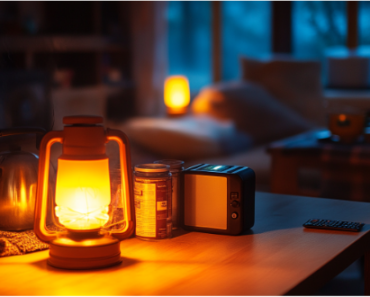There are times when civilian law enforcement simply is not enough to keep its citizens, or the country at large, safe. Their small scope of power can be easily overwhelmed during crises such as natural disasters, war, and civil unrest.
Civilian rule is sometimes lacking authority to do what needs to be done in unusual circumstances, and this can be thought of as one of the driving forces behind the Insurrection Act.
The Insurrection Act of 1807 is a federal law that allows the President to deploy military troops or federalized national guard troops on United States soil. The Insurrection Act is primarily used when an uprising or outside forces threaten the stability of a government.
What Is Martial Law?
“Martial law is the imposition of direct military control of normal civil functions or suspension of civil law by a government, especially in response to an emergency where civil forces are overwhelmed, or in an occupied territory” (Wikipedia).
And according to the Merriam-Webster Dictionary:
1: the law applied in occupied territory by the military authority of the occupying power
2: the law administered by military forces that is invoked by a government in an emergency when the civilian law enforcement agencies are unable to maintain public order and safety
In short, declaring martial law can suspend all civilian government, civilian authority, habeas corpus, and all laws – including the Constitution – and essentially gives military rule unlimited power.
Examples of Marital Law In U.S. History
People are often surprised by how often martial law has been used in United States and how long it can go on for. To date, martial law has been declared more than 60 times in The United States and its duration can last from a few days to years.
A few examples (obtained from Wikipedia) of martial law being declared in the U.S. include:
- New Orleans during the war of 1812
- The Great Chicago Fire of 1871
- West Virginia Coal Wars 1920-1921
I encourage you to read up more on the history of martial law so that you know the circumstances in which it has been used and its effects because history tends to repeat itself.
Additionally, recent changes in laws have given wide ranging powers to the government under the declaration of a “state of emergency.” Researching the depths of both of these declarations allows us to fully understand their implications.
What To Do If Martial Law Is Declared In Your Region or Country
To start, it’s important to know that there are two ways the military can be brought into a situation:
The first is when the military supplements local emergency agencies. In the case of a natural disaster, the national guard can be brought in to aid with logistical and physical support. Usually, your rights will still be in place because marital law is not declared.
The second way, of course, is if the situation is or becomes bad enough that local authorities cannot handle the situation, then they can declare martial law.
When martial law is declared, the military is no longer just a supplemental force. It is a force that has full authority over the situation, and all of your rights may be suspended.
Below are some ideas for preparing for martial law and dealing with it once it has been declared.
Don’t Be Where The Problem Is
Throughout several of my articles, I have stated often, that the best solution to many problems is to not be where the problems is. If martial law is declared in your area or you think it will be, then leave the area if you can.
However, there are two reasons that could prevent you from leaving the area once martial law is declared:
The first is that the event that warranted martial law may physically keep you from leaving, i.e., natural disasters blocking your route of escape.
Secondly, depending on the circumstances, the rules of martial law may prohibit your freedom of movement. This might be the case when dealing with a NBC (nuclear, biological, chemical) threat, or if the precipitating event is violent in nature, such as riots, violent civil unrest, war, civil war, looting, etc.
In the event that you can’t leave the area, there are some things you should know and be prepared for to survive martial law:
1. Know The Rules
When martial law is declared, the most important thing to be aware of are the rules. Basically, what you can and cannot do once the authorities have given control over to the military.
Some rules may include, but are not limited to:
- Curfew: This is a timeframe in which you can and cannot be outside.
- Limited Movement: Movement may be allowed in an area, but it may require you to always carry proper identification and other papers.
- Restricted Movement: Traveling outside of an area, within an area, or even outside of your home could be completely prohibited.
- Resource Allotments: The use of some or all resources (food, water, gas, power,) could be severely limited.
- Restricted Activities: Certain activities or gatherings beyond a certain size may be restricted or banned.
- Contraband: Certain items or materials that were once legal may suddenly become contraband, and therefore illegal to possess.
The rules that are instituted under martial law can really be anything the authorities deem necessary to regain control of the situation. Learn what the rules are, or you could easily find yourself on the wrong side of law enforcement.
2. Choose Your Battles
When martial law is in effect, the situation is obviously pretty serious, and people will be under a lot of stress. This means it won’t take much for tempers to flare and a conflict to ensue.
Therefore, you are going to have to pick and choose your battles.
During normal times, if a law enforcement officer is in the wrong, they may put up with an argument or a verbal lashing from the accused individual.
However, during times of martial law, authority figures (local police, federal troops, national guard) are going to have zero patience for much of anything beyond what they say. This means, if you decide to push an issue (even if you are in the right), you could easily find yourself being detained, even if it is only for a few hours.
3. Practice Gray Man Techniques
Another method to survive martial law is to practice gray man techniques. When at home, this means doing everything possible to avoid bringing attention to yourself or family.
For example, avoid doing these like running a loud generator, leaving windows uncovered so others can see in, leaving supplies or a garden in view of the public eye, cooking aromatic foods, etc.
As a last resort, if you must leave your home, here are a couple of ways to keep yourself safe:
- If you are in a crowd of people, do everything you can to blend in, or better yet, avoid crowds.
- Don’t wear jewelry or openly carry items that others may want or need.
- Avoid wearing clothing that makes you stand out.
- Avoid looking too clean if everyone else is dirty (you may need to avoid soaps with fragrances, shampoos, deodorant, perfumes and cologne).
- Simply put, don’t draw attention to yourself.
4. Stay on High Alert
To avoid danger, a person should always be practicing situational awareness. However, in areas under martial law, you should be on high alert even more than usual.
There could be dangerous groups roaming around looking to steal resources or a person just looking for an opportunity.
This still applies in areas where some kind of disaster has occurred, because there may be more people, agencies, and equipment being moved around – not to mention other hazards like damaged structures or debris.
If you are moving around these areas, keep your head on a swivel and don’t allow your attention to be given to unnecessary distractions.
Supplies You Should Have To Survive Martial Law
Since you don’t know the form martial law will take or how long it will last, the best way to prepare for it is like you would with almost any other disaster.
Resources may become limited. Or, if you are forced to stay inside, then you are going to have to make do with what you have. The following items will help you to ride out the storm during marital law:
1. First Aid
You may have to become your own doctor during martial law, so stock up on boo boo kit supplies, trauma supplies, personal needs, and – most importantly – get some first aid/medical training.
2. Temperature Regulation
If the power is cut off or becomes limited, you are going to want things like battery-powered fans, blankets, DIY heater supplies, and anything else that will help to keep you cool or warm.
3. Water
Stockpile as much potable water as you can, along with filters and purification supplies so that you can create potable water from unsafe sources.
4. Food
Store shelf stable, non-perishable food items like canned goods, rice, flour, wheat, and other emergency food options. Gardens are a great sustainable food source to have, but if it’s located in view of the public eye, it could become a security threat.
5. Power
A backup generator is nice to have, but they can be loud. During martial law, this could draw unwanted attention. Other options include solar, wind, and hydro generators. At a minimum, you should have extra batteries to power essential items. In the event of an EMP attack, you will need back up power or a plan to survive without it.
6. Communications
This can take many different forms, from smartphones, computers, to televisions, and HAM radios. At a minimum, have an emergency NOAA type radio so that you can be informed as to what is being said by the civilian authorities, federal troops, or the federal government.
7. Lighting
It’s not fun or safe being in the dark, so it’s important to have several different kinds of light sources. Items like candles and fuel lanterns (beware of the fire hazard involved with using these) flashlights, headlamps, LED lanterns, etc.
8. Security
Cover up windows to keep light from escaping, this may help to keep people less interested in your home, as well as make it more difficult to see inside. Reinforce all points of entry with heavy duty hardware.
Defensive tools are a must. What form this takes is up to you. But having a way to protect yourself will be a necessity.
9. Fire Safety
This is an often-overlooked area of disaster preparedness, but fire is a force to be reckoned with, whether it is caused naturally or when it’s used as a weapon. Be sure to have plenty of fire extinguishers and fire-retardant blankets available.
FAQs
What does habeas corpus mean?
Habeas corpus is your right to a fair trial. When this is suspended it means you may not be processed through civilian courts or federal courts and could be detained for an indefinite amount of time.
Bypassing civilian courts means citizens could be subjected to military tribunals, which is the military justice system.
How long can martial law go on for?
Martial law can go on for as long as the authorities who declared it deem it necessary. Days, weeks, months, and – in some cases – years.
Who can declare martial law?
In the United States, there are three positions (elected officials) that can declare martial law. A state governor, the president, and congress. When authorities unilaterally declare martial law, they have unlimited authority.
Final Thoughts
Surviving martial law is all about being smart with your actions and your resources. Get out of an area under martial law if possible. If you have to stay, then be sure to abide by the rules or military laws that are acting as a “temporary substitution” to the constitution.
Beyond this, you will need to have the supplies necessary to survive the circumstances, whether that be due to natural disasters or federal troops trying to impose martial law.
Thanks for reading and stay prepared.







































